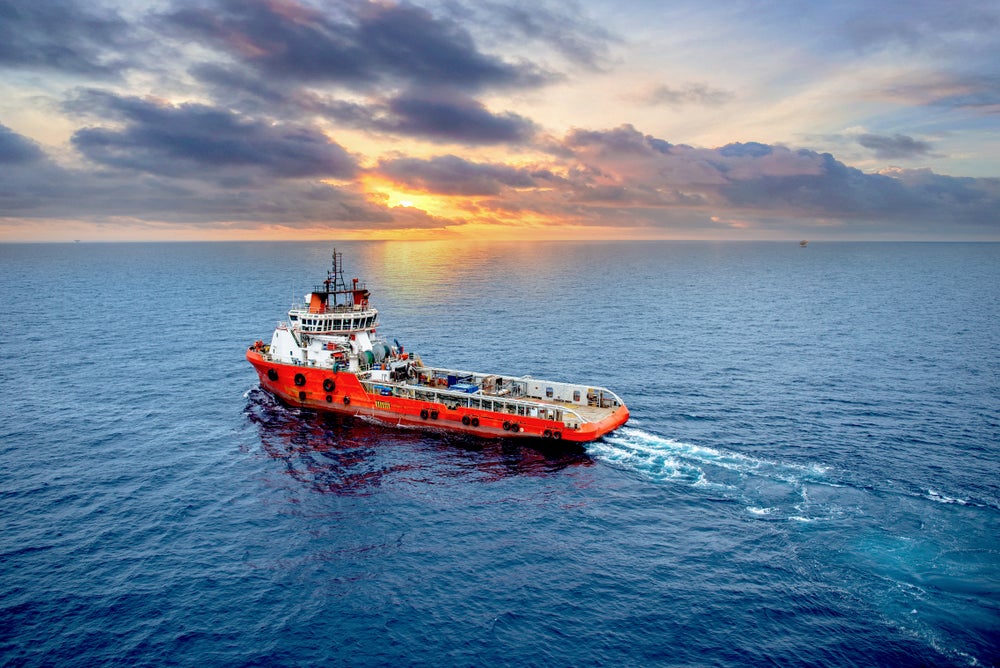The marine offshore sector provides a blueprint of how data can be harnessed to improve fuel efficiency. Digitalisation in the Offshore Support Vessel (OSV) sector has become a necessity in response to a rapidly tightening market. The marine offshore market is rebounding after years of stagnation, resulting in a shortage of vessels and substantial hikes in day rates and fuel prices.
Soaring fuel costs and day rates at levels not seen since 2008 are pushing charterers to implement digital systems for operational monitoring and fuel efficiency, aiming to cut costs in a rapidly changing environment.

Meanwhile, shipowners are driven to maximise vessel availability to capitalise on favourable market conditions, but high interest rates are making financing and newbuild orders less attractive. As a result, the industry is concentrating on extending vessel life amid ongoing uncertainty over new fuels and regulations.
This is driving several companies to enhance their fleet’s digitalisation to optimise their operations and reduce fuel consumption.
Emission reductions, delivered by data
The experience in the OSV segment is highlighting the transformative potential of digitalisation in boosting fuel efficiency across the broader shipping sector.
A notable example includes Opsealog’s newly-announced collaboration with French shipping company Bourbon, which will reduce emissions across its global Marine & Logistics fleet of 104 vessels through data-driven optimisation.

US Tariffs are shifting - will you react or anticipate?
Don’t let policy changes catch you off guard. Stay proactive with real-time data and expert analysis.
By GlobalDataThis collaboration involves real-time fleet monitoring and increased digitalisation of vessel reporting processes, with data from multiple sources then integrated and analysed to identify efficiency opportunities and recommend best practices to ship management teams.
After a successful six-month pilot on 25 OSVs that saved 45-50 tonnes of CO2 per vessel each month, the agreement has been expanded to cover the entire fleet.
What’s next for data-driven insights?
Looking ahead, the use of data-driven insights will expand beyond reducing fuel consumption and emissions, extending to broader optimisation of fleet utilisation and management.
In practice, pioneering charterers are already leveraging digital systems to ensure the appropriate vessel type and size are matched to each task and to identify specific requirements for the next vessel to be chartered. For shipowners, smart data can optimise maintenance schedules to minimise costs and monitor the number of days a vessel is out of service due to breakdowns.
One of the most promising future maritime digitalisation applications will be verifying whether performance clauses outlined in charter party agreements are being met. As costs rise, there will be increasing pressure to monitor each party’s obligations and enforce contract performance, making the need for a trusted, independent platform to track and report on contractual obligations even more critical.
Digital systems will be crucial in maintaining health and safety standards.
Additionally, digital systems will be crucial in maintaining health and safety standards. This includes gathering data on drills conducted on board and enforcing stop-work policies, which help sustain safety protocols and enable teams to proactively address safety concerns.
This underscores the multifaceted potential of data, not only in supporting operational, financial, and environmental objectives but also in empowering the industry’s most valuable asset: its people.
Overcoming challenges of OSV digitalisation
Several key barriers continue to hinder the widespread adoption of digital technologies in the offshore sector, but addressing these challenges can provide valuable lessons for the broader maritime industry when it comes to navigating the path to digitalisation.
Fostering and reinforcing a digital culture will be crucial in driving progress. With the rapid proliferation of digital system providers, the ability to connect and integrate data will become increasingly vital. Without interoperability, companies risk developing fragmented data ecosystems with incompatible components, which could undermine the full potential of digitalisation.
This situation calls for a more collaborative approach, with increased data exchange and integration among different digital system providers working for the same company, ultimately benefiting the end customer.
To sustain and accelerate the momentum of digitalisation, it is critical to address the uncertainties that leave many shipowners and charterers in a “wait and see” mindset. Despite the wide availability of digital systems, shipowners often lack a clear understanding of the return on investment (ROI) these solutions offer and how they can work together effectively.
Fostering and reinforcing a digital culture will be crucial in driving progress.
From a supplier’s perspective, it is essential to present a practical business case for digitalisation, positioning it as a “low-hanging fruit” that requires minimal capital expenditure while delivering immediate efficiency gains and fuel savings.
While initial successes in fuel efficiency and emissions reductions for OSVs are promising, the full potential of data-driven solutions in the offshore sector remains largely untapped. To fully capitalise on the opportunities represented by digitalisation, the industry must overcome several hurdles.
Fostering a digital culture, ensuring data interoperability, and demonstrating clear ROI are essential for widespread adoption. By addressing these challenges, the maritime offshore sector, and shipping as a whole, can unlock a new era of efficiency, sustainability, and profitability.
As the industry navigates this digital journey, stakeholders are urged to consider how data is more than just a tool; it is a catalyst for innovation and growth. By harnessing its power, the maritime offshore sector can not only survive but thrive in an increasingly complex and competitive landscape.




